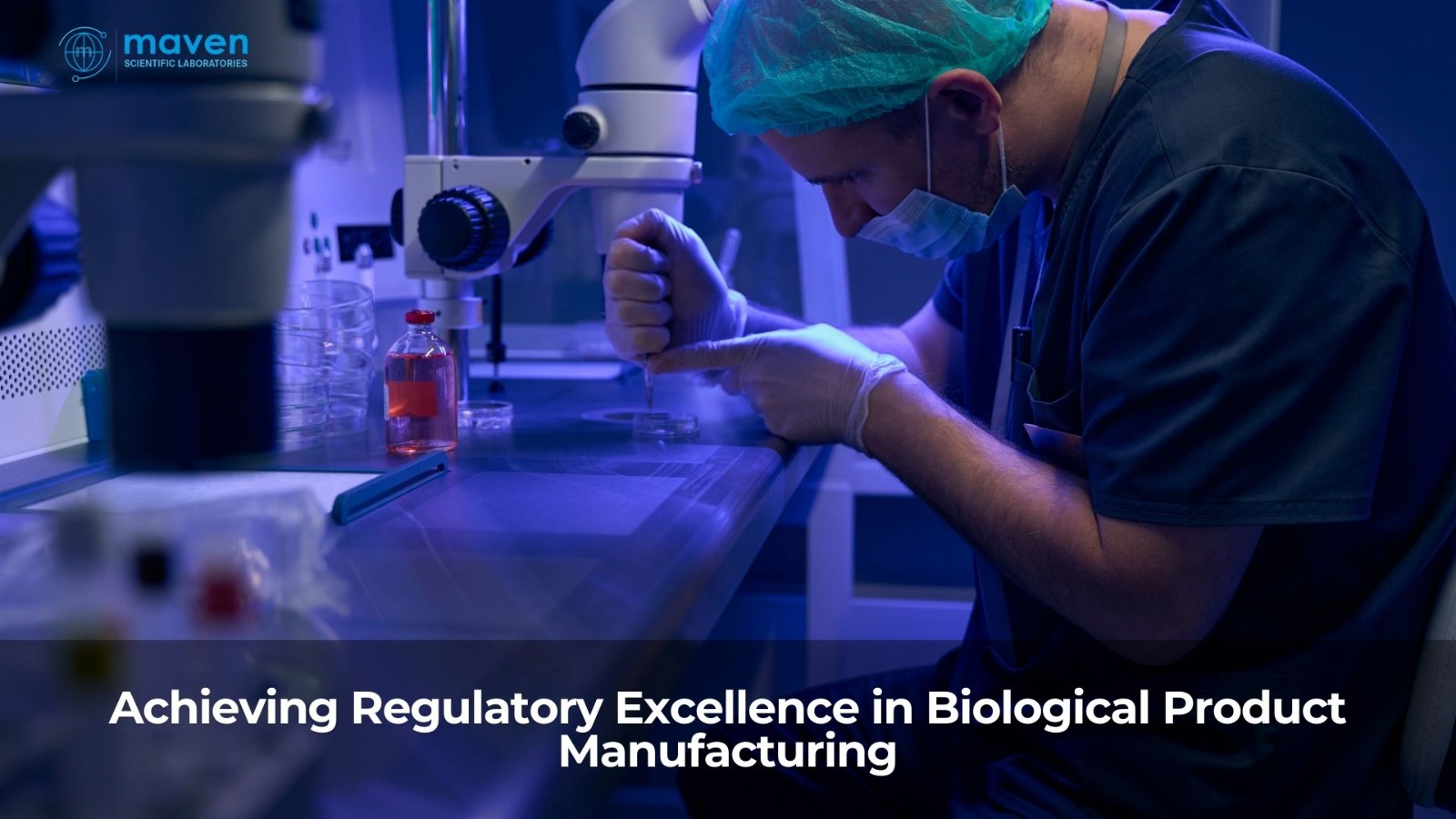
Achieving Regulatory Excellence In Biological Product Manufacturing
The regulatory landscape for biological products continues to evolve, with the U.S. Food and Drug Administration (FDA) emphasizing the need for compliance in manufacturing, marketing, and distribution. Companies in the pharmaceutical and biotech sectors must ensure their products meet stringent regulatory requirements to maintain product integrity, protect public health, and avoid enforcement actions.
Understanding the Regulatory Landscape
Biological products, particularly those intended for regenerative medicine, gene therapy, and biosimilar applications, require rigorous oversight to ensure safety, purity, and potency. Companies must adhere to federal regulations, including the Public Health Service (PHS) Act, the Federal Food, Drug, and Cosmetic Act (FD&C Act), and 21 CFR regulations, to gain market approval and avoid regulatory setbacks. Key compliance areas include:
1. Biologics License Application (BLA) – 21 CFR Part 601
A BLA is required for the commercial distribution of a biological product in the U.S. It must include extensive data on clinical safety and efficacy, manufacturing processes, and product characterization. The FDA Centre for Biologics Evaluation and Research (CBER) and the Centre for Drug Evaluation and Research (CDER) review BLAs based on the product type.
2. Investigational New Drug (IND) Application – 21 CFR Part 312
An IND must be submitted before initiating clinical trials to assess the safety, efficacy, and pharmacokinetics of a biological product in human subjects. This includes preclinical study data, manufacturing information, and proposed clinical trial protocols.
3. Current Good Manufacturing Practices (cGMP) – 21 CFR Parts 210, 211 & 600-680
Compliance with cGMP is crucial to prevent contamination, variability, and product failures. It mandates strict quality control, sterility, and process validation to ensure batch consistency and compliance with FDA standards. Non-compliance can result in FDA warning letters, import alerts, and product recalls.
4. Labelling and Marketing Compliance – 21 CFR Part 201 & 610.60-610.68
Companies must ensure that their labelling, advertising, and promotional claims align with FDA-approved indications to avoid misbranding and misleading statements. The FDA’s Office of Prescription Drug Promotion (OPDP) enforces these regulations, and violations can lead to regulatory actions, fines, or product restrictions.
5. Risk-Based Framework for Regenerative Medicine – 21st Century Cures Act & 21 CFR Part 1271
Products like cell-based therapies, tissue-engineered products, and gene therapies may qualify for expedited pathways such as the Regenerative Medicine Advanced Therapy (RMAT) designation under the 21st Century Cures Act. However, they must still comply with tissue regulations (HCT/Ps) and FDA premarket approval pathways.
How Maven Can Support Compliance Efforts
Navigating the complex and evolving regulatory landscape requires expert guidance. Maven offers tailored regulatory consulting services to help companies achieve compliance and successfully bring their biological products to market. Our services include:
- Regulatory Strategy & Compliance Assessments: Evaluating the regulatory classification, pathway, and approval requirements for biological products.
- BLA and IND Submission Support: Assisting in the preparation, submission, and FDA interactions for Biologics License Applications and Investigational New Drug Applications.
- Quality Assurance & cGMP Compliance: Developing and implementing robust quality management systems to meet cGMP and FDA regulatory standards.
- Risk Assessment & Regulatory Gap Analysis: Identifying potential compliance risks, data gaps, and regulatory inconsistencies to mitigate approval delays.
- Audit Preparation & FDA Interaction: Supporting companies in responding to regulatory inquiries, conducting mock audits, and preparing for FDA inspections.
Ensuring Long-Term Success in the Biotech Industry
Compliance with FDA regulations is not just a legal obligation—it is a foundation for building trust with healthcare professionals, investors, and consumers. Companies that proactively address regulatory requirements can:
Avoid enforcement actions, warning letters, and import bans.
Enhance product credibility and market acceptance.
Streamline approvals and expedite time-to-market.
Ensure patient safety and long-term product sustainability.
Conclusion
In an industry where regulatory compliance determines success, biotech and pharmaceutical companies must remain proactive and well-informed. Regulatory hurdles can be complex, but with the right strategy and expert support, companies can navigate these challenges efficiently.
Maven is dedicated to ensuring that biological products meet the highest safety and efficacy standards. Our deep expertise in compliance, quality assurance, and risk assessment makes us the ideal partner for companies seeking regulatory success and sustainable growth.
Partner with Maven today to streamline your regulatory journey. Our expert team ensures compliance, mitigates risks, and accelerates market entry for your biological products. Contact us now to achieve regulatory excellence with confidence.







